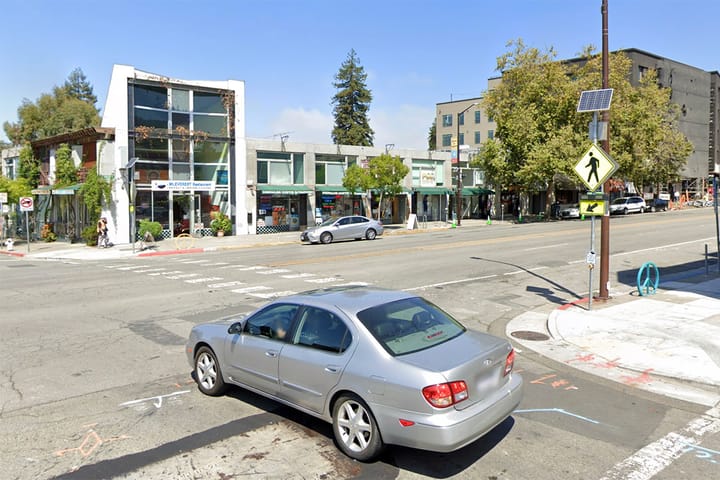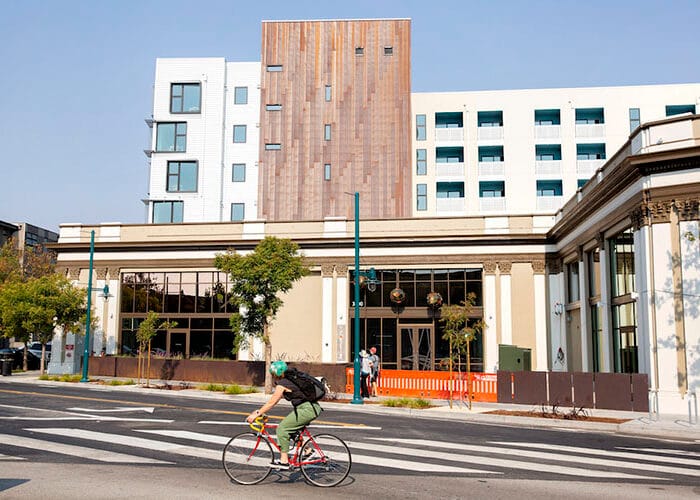UC Berkeley clears People's Park with eye on housing plans
Park supporters have staunchly opposed the plans, citing the park's long history as a community space and cultural landmark.

Police officers swept into People's Park overnight and overcame a small protest to secure the site for housing UC Berkeley hopes to build.
The university tried to start construction more than a year ago, in August 2022, but protesters occupied the area and flouted those plans, which are now stalled by pending litigation.
Once those issues are resolved, Cal says it hopes to build 1,100 beds of student housing, as well as permanent supportive housing for formerly unhoused people, on the 2.8-acre site, leaving 60% of it as open space.
Park supporters have staunchly opposed those plans, citing the park's long history as a community space and cultural landmark.
Many other people, including Berkeley Mayor Jesse Arreguin and Southside Councilman Rigel Robinson, have said they support housing at the site and want to see it cleaned up and accessible to more people.
The university says crime has "intensified" at the park in recent years — with 18 rapes, 19 robberies, 110 aggravated assaults, 48 drug arrests and six weapons arrests since 2020 — and that those security issues were one reason for this week's operation.
UC Berkeley also said it chose a time to clear the park when most students would be gone and most people would be sleeping to minimize risks and disruption.
"Unfortunately, our planning and actions must take into account that some of the project’s opponents have previously resorted to violence and vandalism," UC Berkeley Chancellor Carol Christ said in a prepared statement, "despite strong support for the project on the part of students, community members, advocates for unhoused people, the elected leadership of the City of Berkeley, as well as the legislature and governor of the state of California."
In its most recent survey, from May 2022, UC Berkeley found that 57% of Cal students support the People's Park housing project compared to 27% who do not.
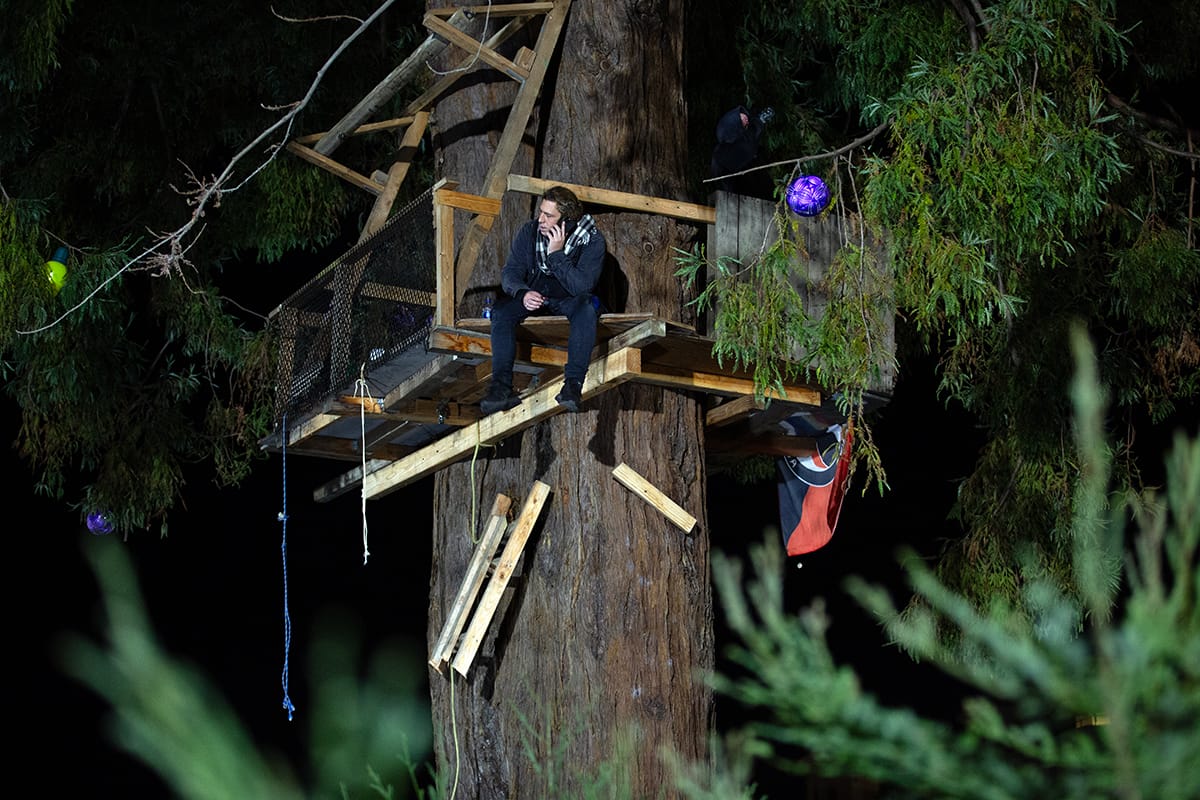
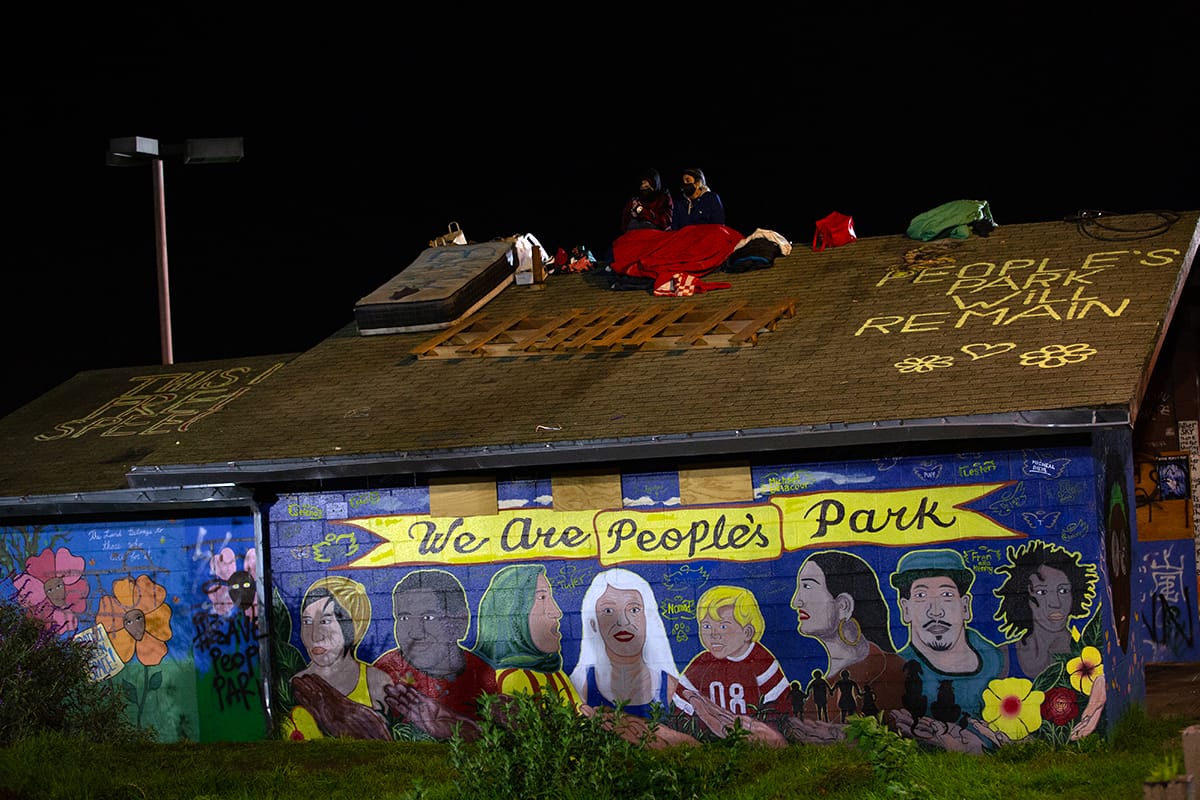
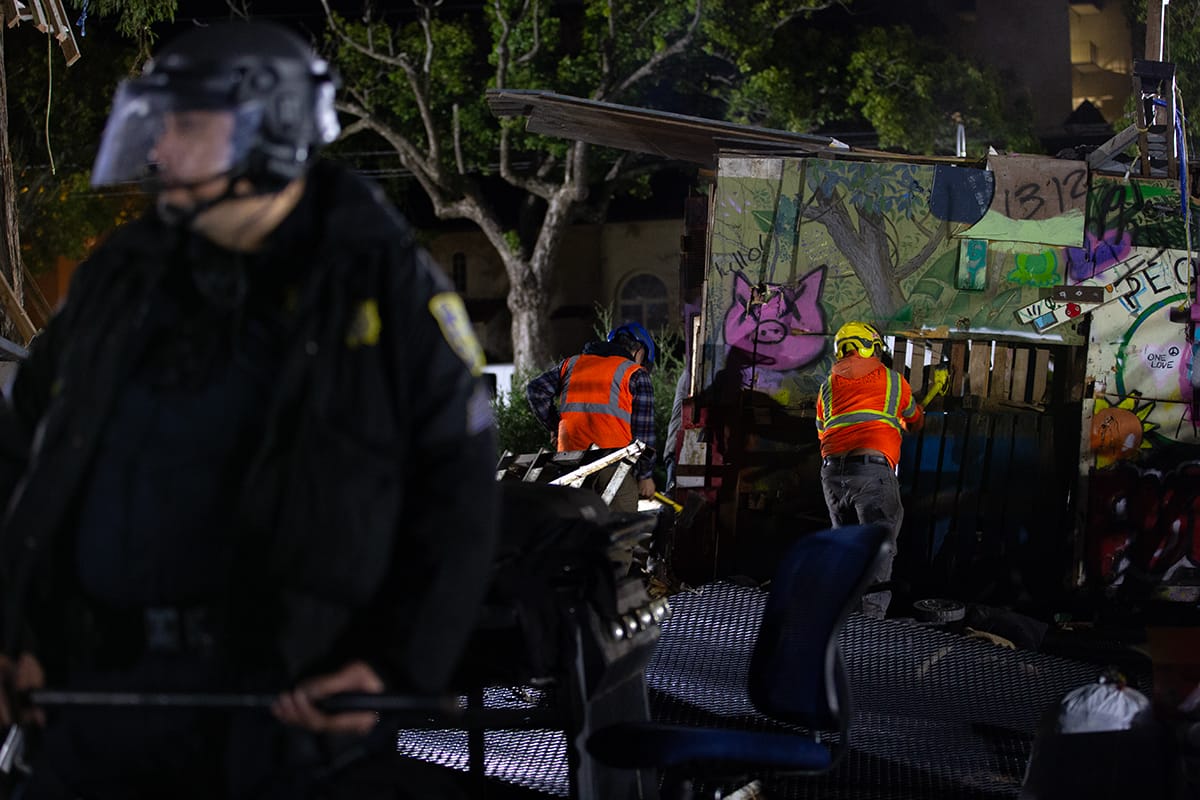
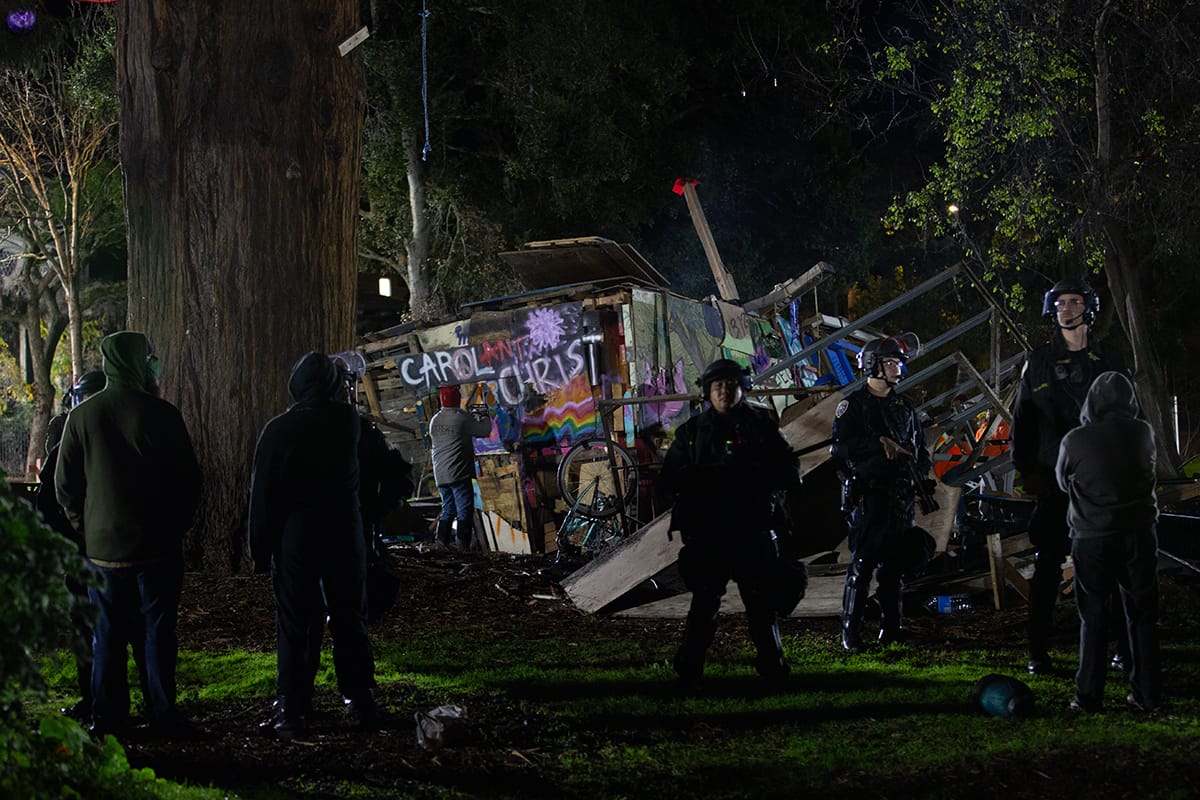
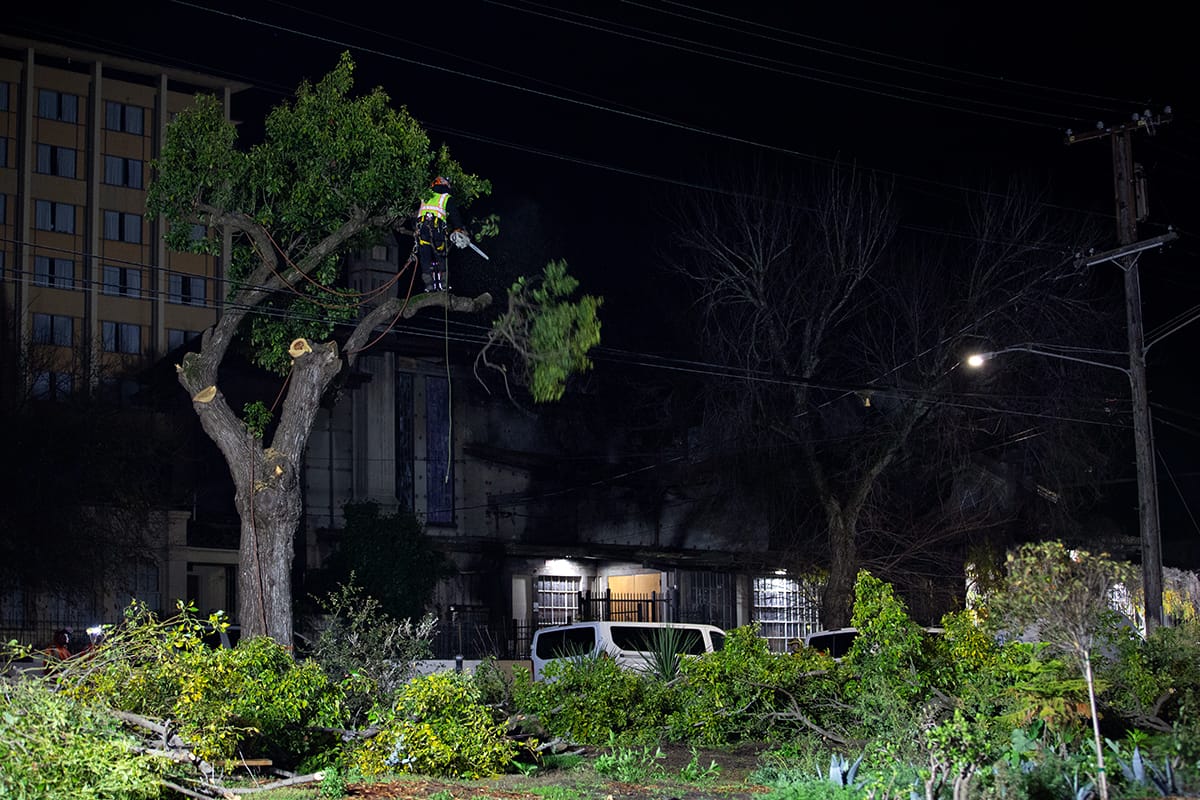
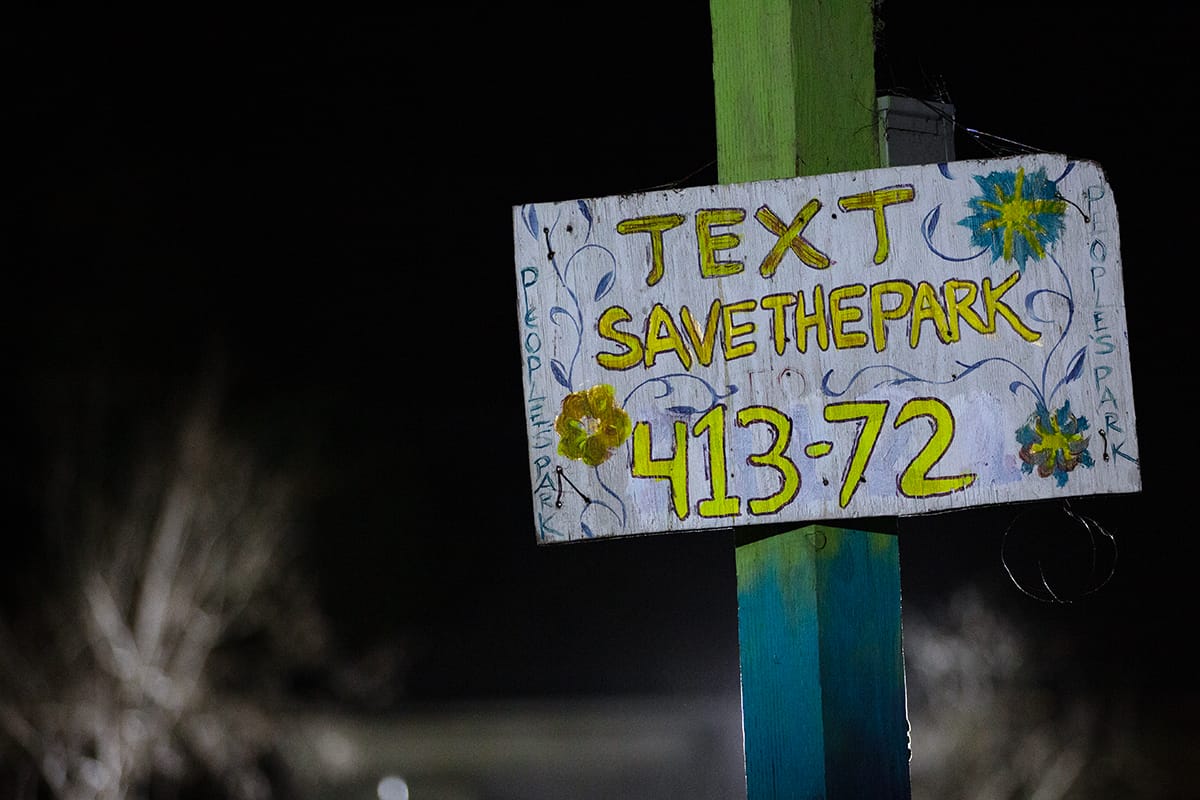
Scenes from People's Park in Berkeley, Jan. 4, 2024. Emilie Raguso/TBS
UC Berkeley did its best to keep a lid on its plans this week but park supporters had been preparing for days for a big push from police.
It came late Wednesday night when officers flooded People's Park with an initial focus on a heavily fortified building toward the east side of the property.
Officers from the University of California Police Department, California Highway Patrol and possibly other agencies created a perimeter around the building, which had served as a community kitchen.
Police eventually forced their way inside, relying on an array of tools, and arrested two people who were barricaded there.
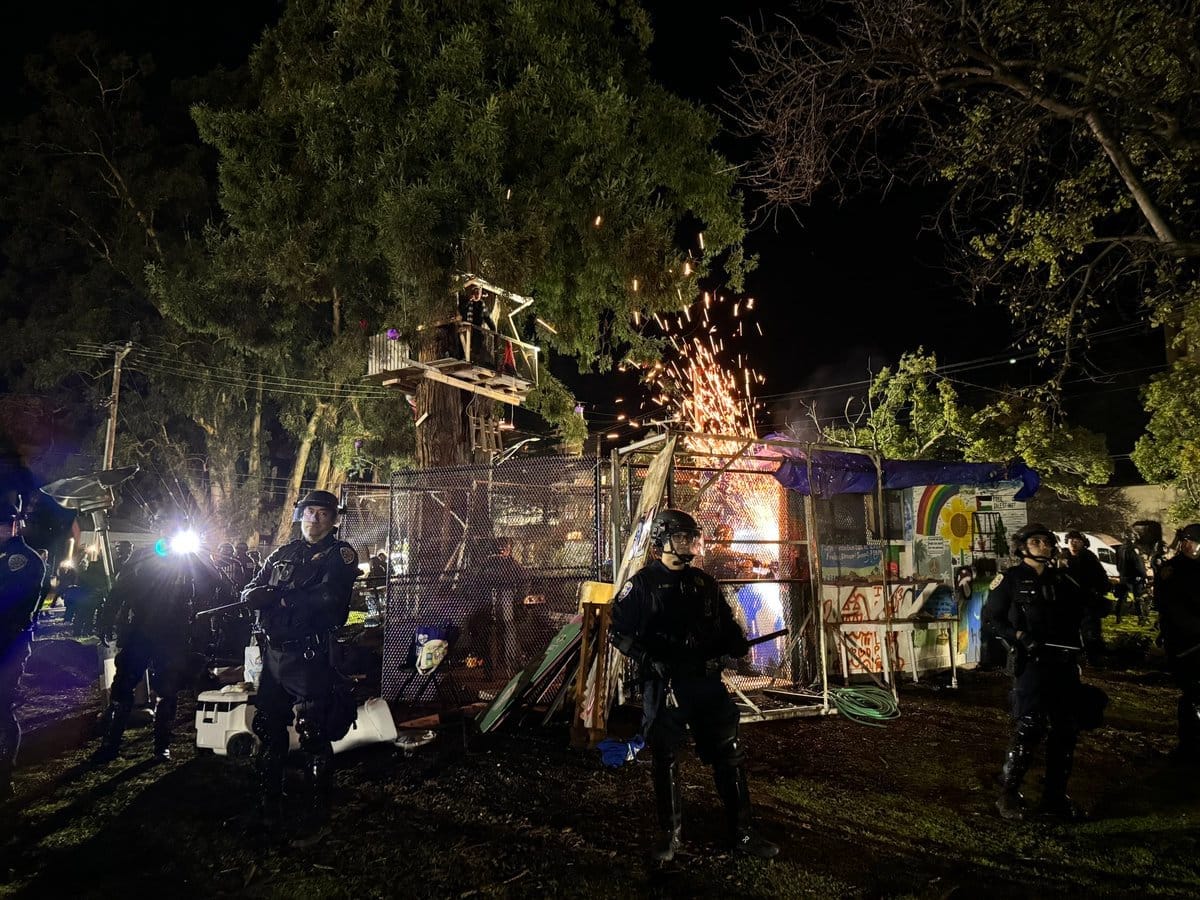
Dozens of police officers have moved in to People’s Park in Berkeley and are making trespassing orders: “If you do not leave now, you will be arrested.” pic.twitter.com/x1eEdazfIP
— The Berkeley Scanner (@BerkeleyScanner) January 4, 2024
Nearby, several people occupied a platform on a large redwood tree from which they taunted police for hours.
In total, UC Berkeley spokesman Dan Mogulof said, seven people were arrested overnight for misdemeanor crimes. They were cited and released at the scene.
City of Berkeley police did not seem to play a visible role in the operation.
Throughout the night, police greatly outnumbered protesters, some of whom tried to engage with the officers while others simply watched and documented what was happening.
People’s Park focus seems to be demolition crew still at work on main kitchen structure. Scattered protesters still around police perimeter. Several people remain up on a platform in a redwood tree, heckling the workers and police. pic.twitter.com/PE4c3HYzHa
— The Berkeley Scanner (@BerkeleyScanner) January 4, 2024
After taking control of the kitchen, police slowly and methodically pushed most of the crowd west onto Telegraph Avenue at Haste Street where a few dozen people then protested for hours, blocking northbound Telegraph with barricades as lines of police officers looked on.
Credentialed reporters were given media badges to view the construction site, where workers donned harnesses and used chainsaws to take down trees to allow for the installation of "double-stacked shipping containers" UC Berkeley says are necessary to secure the area.
Final shot at People’s Park. Story forthcoming. pic.twitter.com/3T9tjB4Uv2
— The Berkeley Scanner (@BerkeleyScanner) January 4, 2024
The university said it will likely take days to install all of the shipping containers and that road closures — on Dwight Way, Haste Street, Channing Way and Bowditch Street — will be in effect during that time.
After police pushed out most of the park supporters to Telegraph, dozens of workers descended on the site to tackle various jobs, from using heavy machinery to clear trees to packing up items left by unsheltered individuals.
Workers in heavy machinery removing trees at People’s Park while officers check tents and tell community members inside they need to leave. pic.twitter.com/NagG2zZumj
— The Berkeley Scanner (@BerkeleyScanner) January 4, 2024
Central tents being removed from People’s Park now. pic.twitter.com/2hYIGnVOLl
— The Berkeley Scanner (@BerkeleyScanner) January 4, 2024
A smattering of people watched the work unfold from the sidewalk.
One of them was Andrea Prichett, co-founder of Berkeley Copwatch and a self-described park supporter.
"This is like a public execution of a dream," she said at nearly 5 a.m. "What I see here is the taking of something that served poor people and it's being taken and appropriated for the benefit of the wealthy and the privileged."
She said the People's Park community had tried, for almost 55 years, "to provide a little bit of space for each other — and we've been attacked by the university, we've been attacked by the city. We've always been under siege. And what we've asked for is for help."
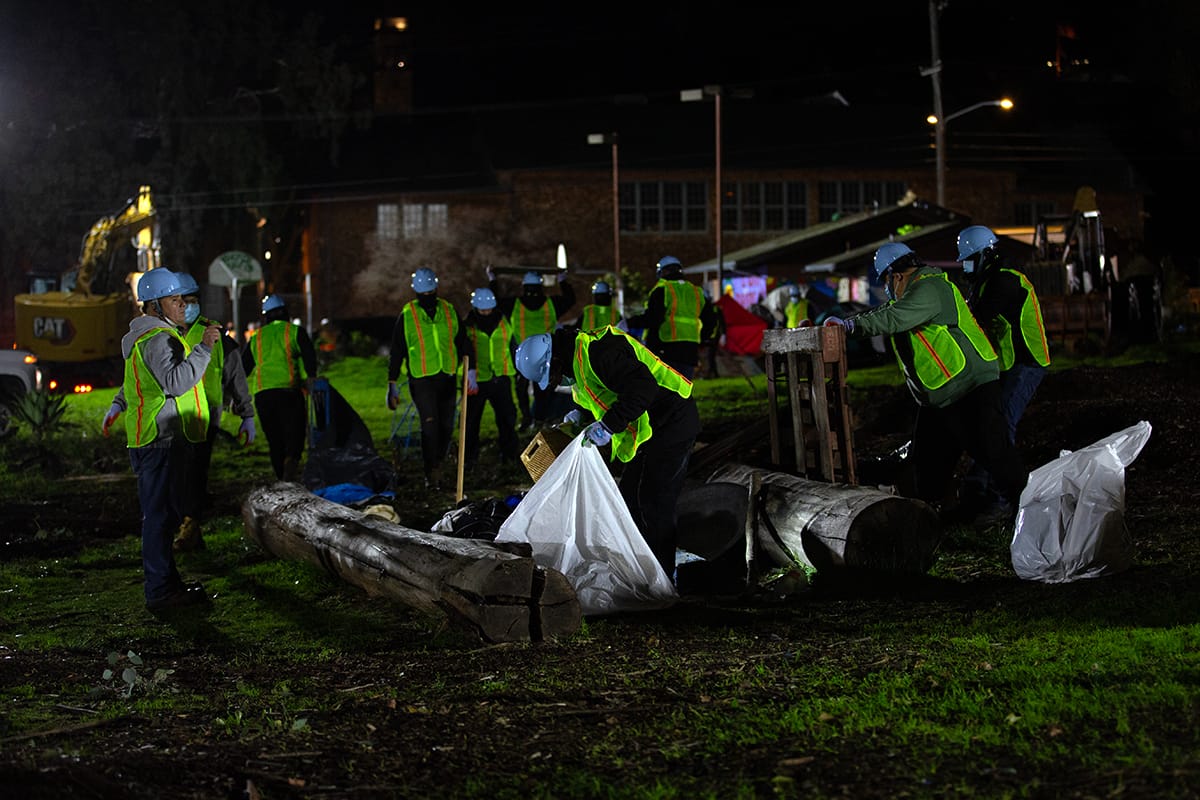
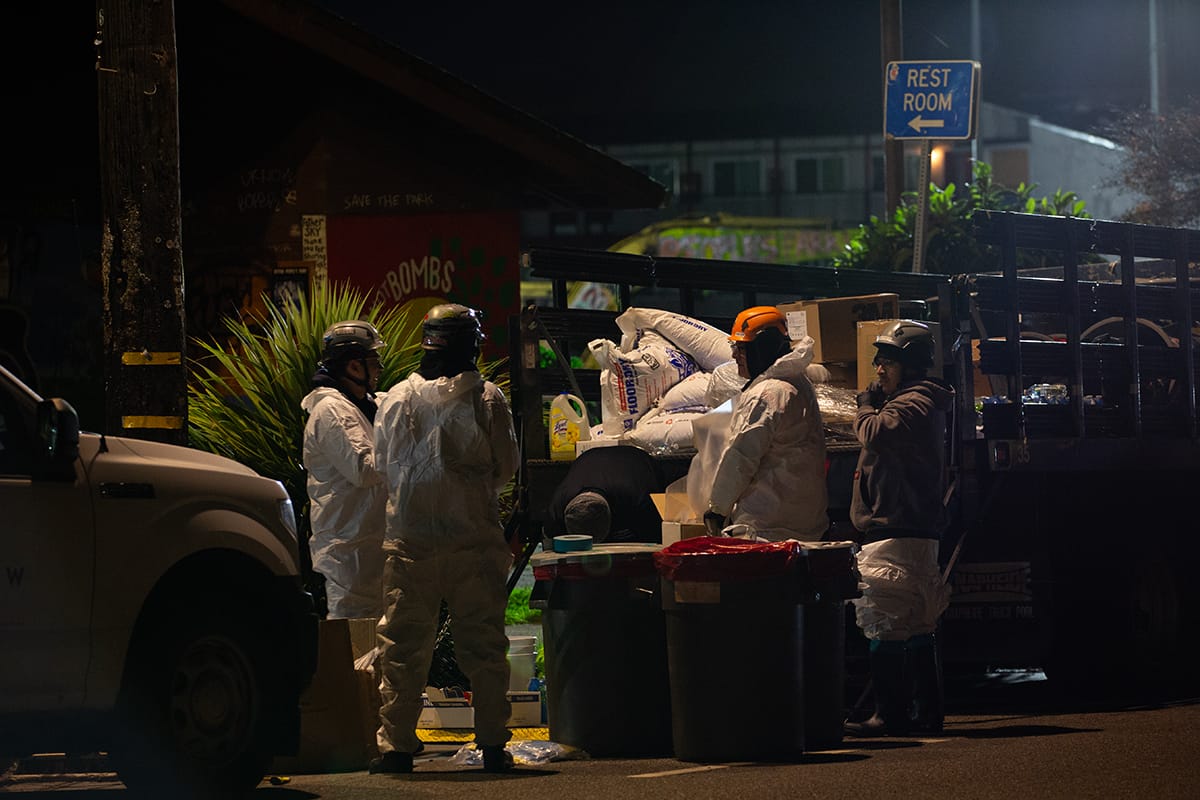
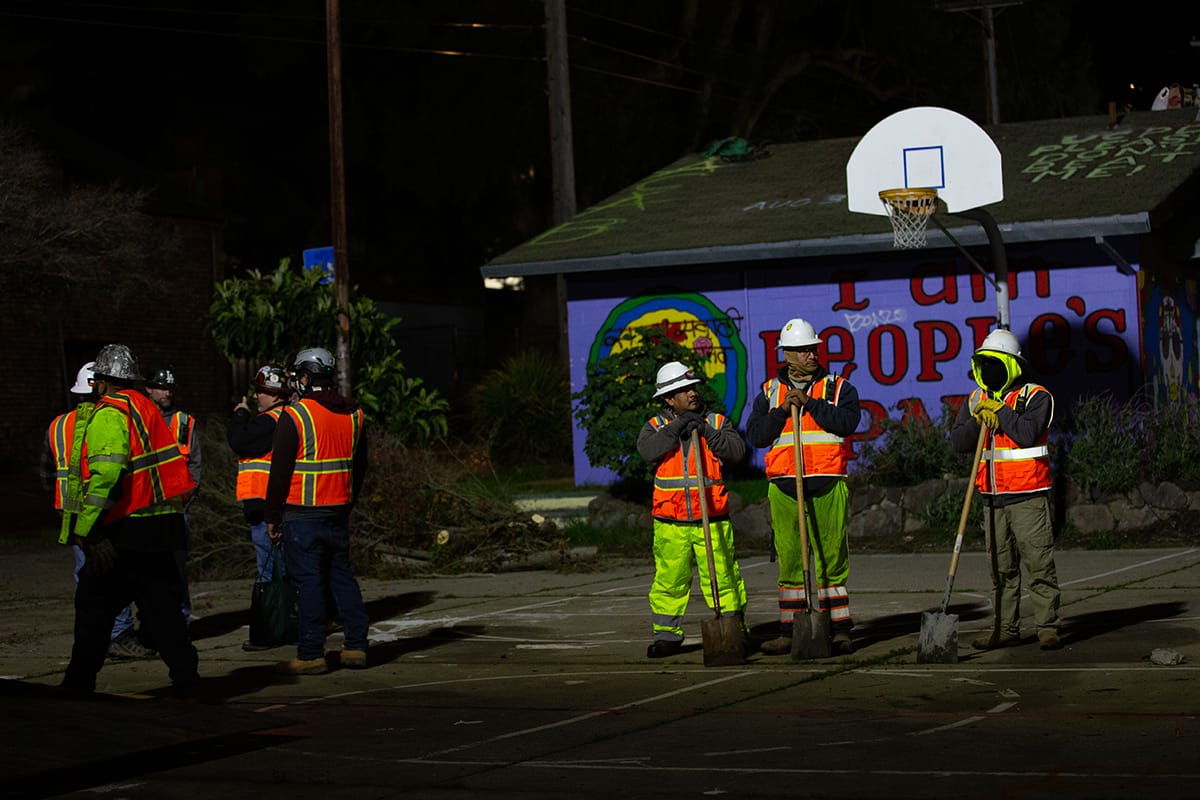
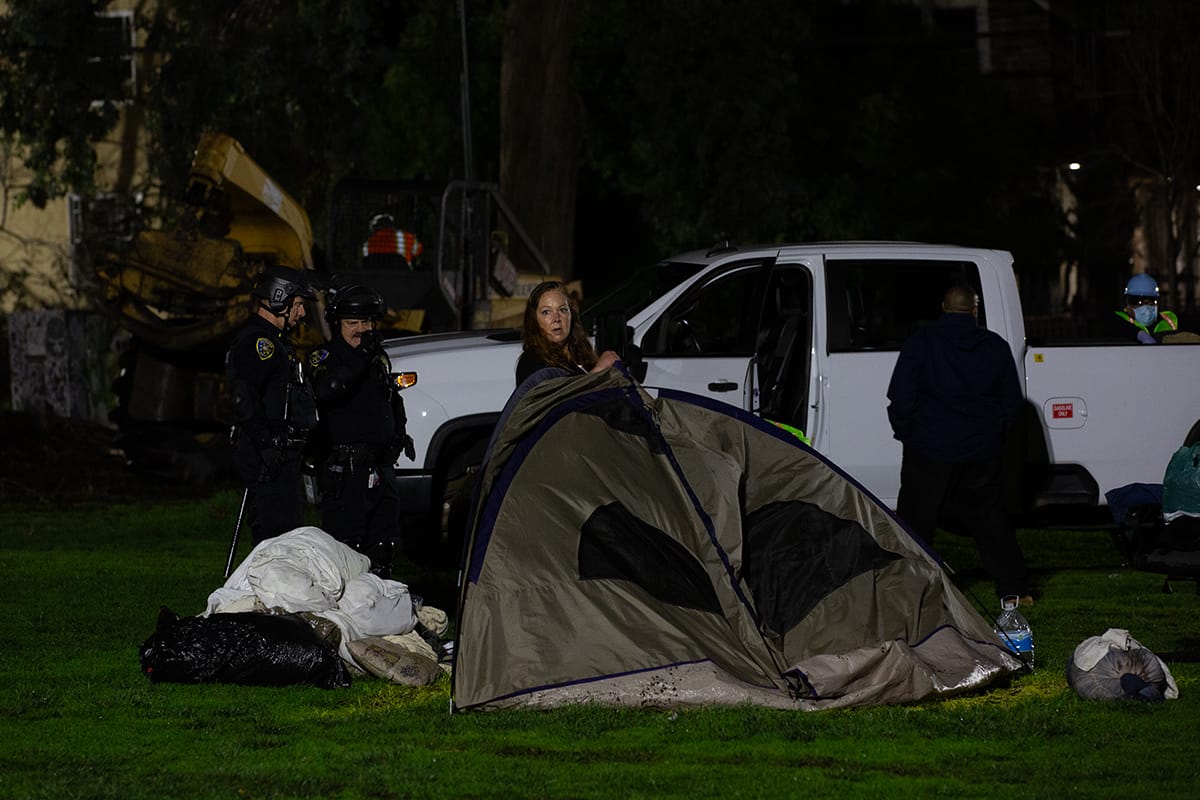
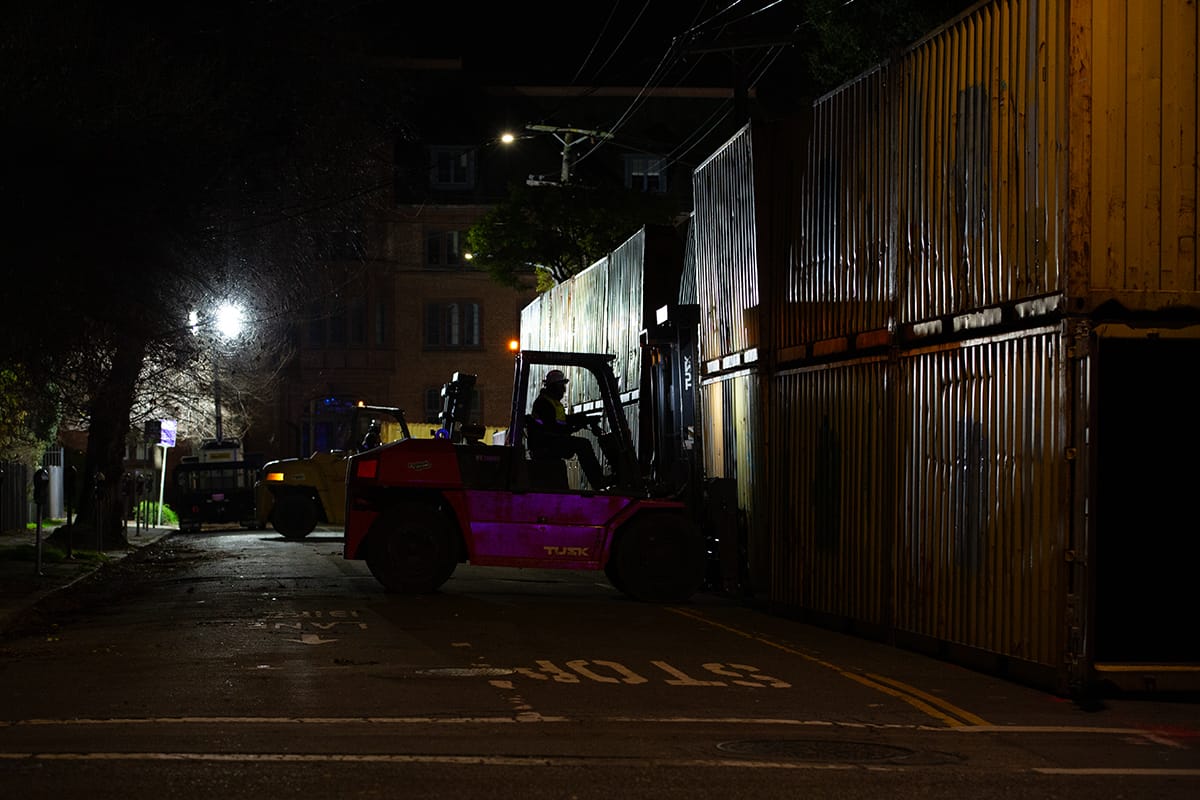
Scenes from People's Park in Berkeley, Jan. 4, 2024. Emilie Raguso/TBS
Lev Marcus, another Berkeley resident, was standing near Prichett watching the workers in the park early Thursday morning.
He said he had started going to People's Park to play chess and found a supportive community there. Marcus said his parents and their friends had begun protesting at the park in 1969.
"I think it represents a place that has the potential to start social movements and to create a spark for something bigger," he said. "This place has so much symbolic and historical value that I think it's worth finding another parking lot to build your student housing on."
About 50 People’s Park protesters are still here. Some just threw glass bottles toward officers. Most of the activity is now at Haste and Telegraph where the police line is. The crowd is playing music and making remarks: “People in Berkeley, wake up!” “This is a land grab.” pic.twitter.com/YSYAxGiusS
— The Berkeley Scanner (@BerkeleyScanner) January 4, 2024
Around the same time, a 45-year-old man called Nova, who also goes by the name Rodrigo, was packing up belongings and struggling to get them onto a cart covered by a tarp.
He said he now lives in a hotel but had lived in the park for 12-13 years. He said he still spends his days at People's Park because he doesn't like to be inside.
Nova said UC Berkeley had used "brute force" to push people out of the park Thursday.
"They're not giving us any choices at all," he said. "They're just coming in here and taking us out with no paperwork.
"I'm just one of the people that benefited from this place," he added. "Saved my life a few times. And I'm really sad to see it mistreated like this."
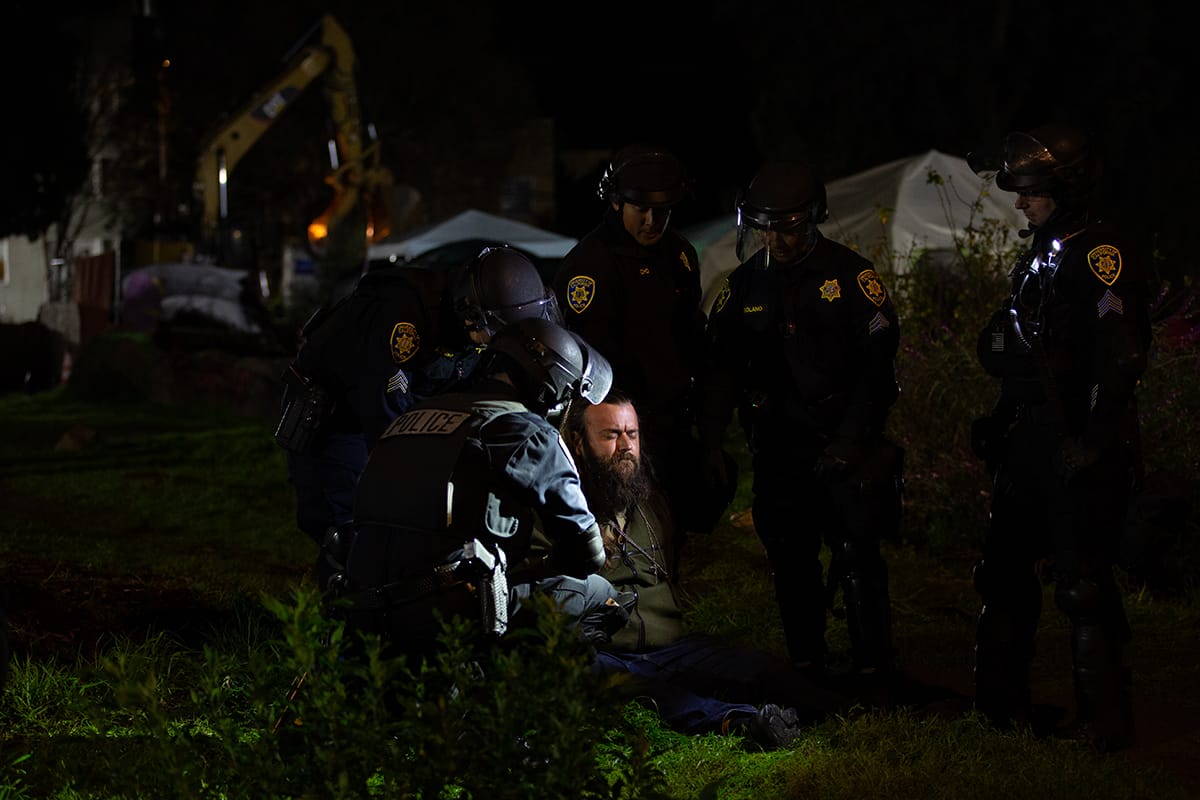
Most of the people who had been living in the park had moved into other lodging, at UC's behest, before the police operation.
According to UC Berkeley, 89 unhoused people moved into transitional housing between August 2022 and October 2023.
"After a census established that 25 people were living on the site in November 2023, the city-campus partnership dedicated $1 million to lease the Quality Inn motel and contract with Dorothy Day House to provide needed social and other supportive services," UC Berkeley said in a prepared statement. "Twenty-one of the 25 unhoused people on the site accepted the offer and are now on the path to permanent housing."
But a handful of residents were still there Thursday.
Throughout the night, police officers went tent to tent to tell them they needed to leave.
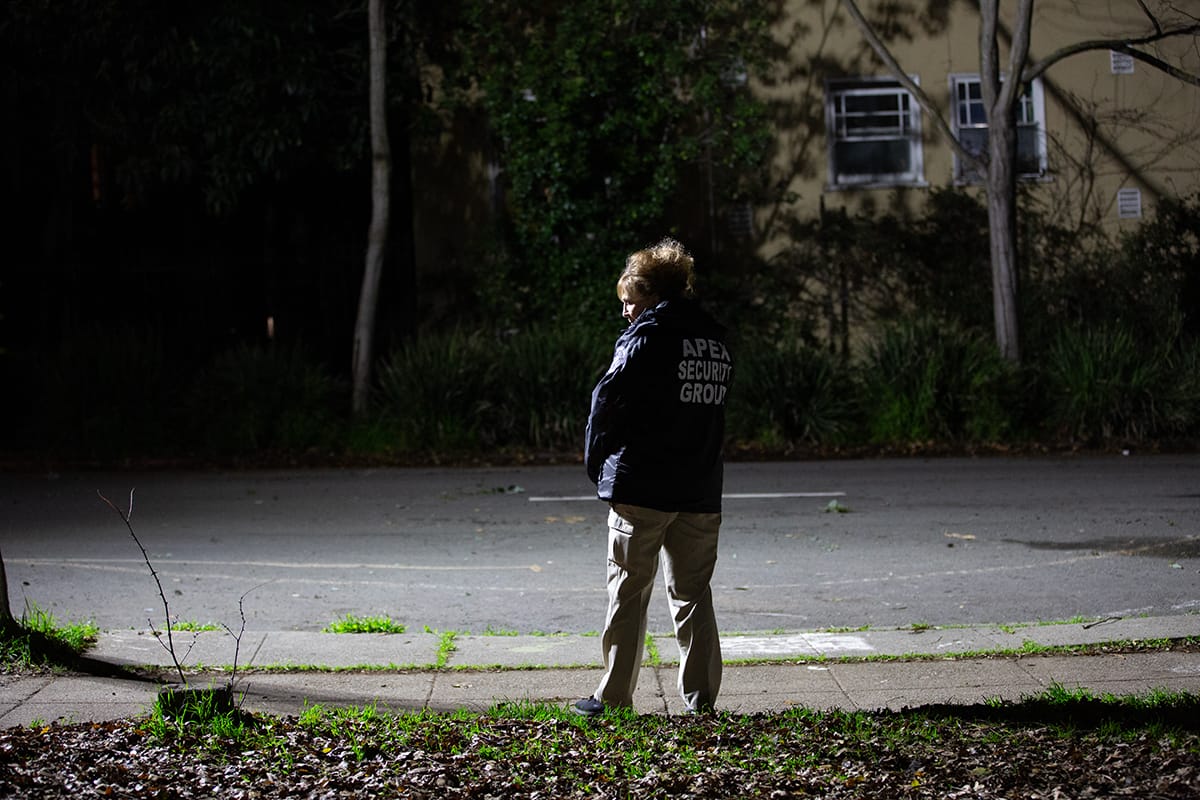
At 6 a.m., the University of California Police Department sent out a WarnMe notice advising of police activity in the area of the People’s Park construction site.
In the notice, UCPD urged people to "Avoid campus properties, the Underhill parking lot and streets in the Southside neighborhood. This includes the roads south of Durant Avenue, east of Telegraph Avenue, west of College Avenue and north of Dwight Way."
"As part of the work related to the closure of the People’s Park construction site roads will be closed in this area and traffic may be impacted," UCPD wrote. "We anticipate the operation will take six days. Sidewalks immediately adjacent to People’s Park will be closed for the duration of the construction project."
Park supporters have now announced a rally and march at 11 a.m. Thursday beginning at Haste Street and Telegraph Avenue.
More information
- Read more from UC Berkeley about plans for housing at People's Park.
- See more videos, photographs and overnight updates on The Scanner's X feed. Regrettably, the view is limited for those without an account.


